
ETH Zurich is a public research university in Zurich, Switzerland. Founded in 1854 with the stated mission to educate engineers and scientists, the university focuses primarily on science, technology, engineering, and mathematics.
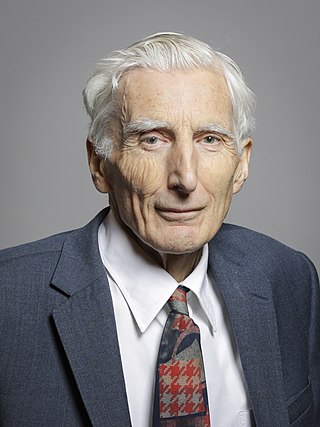
Martin John Rees, Baron Rees of Ludlow, is a British cosmologist and astrophysicist. He is the fifteenth Astronomer Royal, appointed in 1995, and was Master of Trinity College, Cambridge, from 2004 to 2012 and President of the Royal Society between 2005 and 2010. He has received various physics awards including the Wolf Prize in Physics in 2024 for fundamental contributions to high-energy astrophysics, galaxies and structure formation, and cosmology.

Catalina Sky Survey is an astronomical survey to discover comets and asteroids. It is conducted at the Steward Observatory's Catalina Station, located near Tucson, Arizona, in the United States.
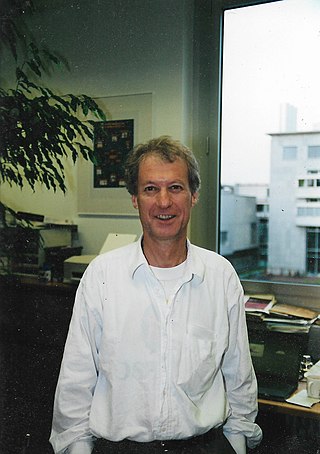
Rolf Pfeifer is a Swiss artificial-intelligence researcher. He was a professor of computer science at the Department of Informatics at the University of Zurich, and director of the Artificial Intelligence Laboratory, where he retired in 2014. Currently he is a specially appointed professor at Osaka University, and a visiting professor at Shanghai Jiao Tong University.

Sir Demis Hassabis is a British computational neuroscientist, artificial intelligence researcher, and entrepreneur. In his early career, he was a video game AI programmer and designer, and an expert board games player. He is the chief executive officer and co-founder of Google DeepMind and Isomorphic Labs, and a UK Government AI Adviser.
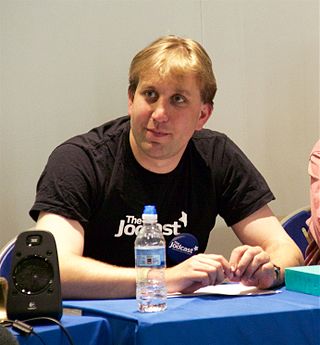
Christopher John Lintott is a British astrophysicist, author and broadcaster. He is a Professor of Astrophysics in the Department of Physics at the University of Oxford, and, since 2023, Gresham Professor of Astronomy at Gresham College, London. Lintott is involved in a number of popular science projects aimed at bringing astronomy to a wider audience and is also the primary presenter of the BBC television series The Sky at Night, having previously been co-presenter with Patrick Moore until Moore's death in 2012. He co-authored Bang! – The Complete History of the Universe and The Cosmic Tourist with Moore and Queen guitarist and astrophysicist Brian May.

Galaxy Zoo is a crowdsourced astronomy project which invites people to assist in the morphological classification of large numbers of galaxies. It is an example of citizen science as it enlists the help of members of the public to help in scientific research.
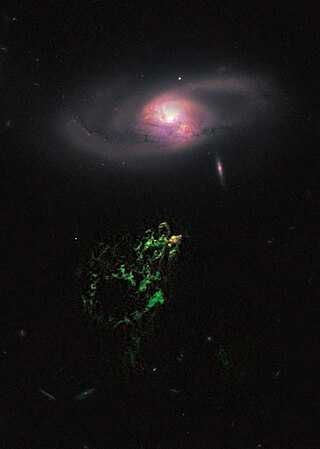
Hanny's Voorwerp is a type of astronomical object called a quasar ionization echo. It was discovered in 2007 by Dutch schoolteacher Hanny van Arkel while she was participating as a volunteer in the Galaxy Zoo project, part of the Zooniverse group of citizen science websites. Photographically, it appears as a bright blob close to spiral galaxy IC 2497 in the constellation Leo Minor.

Zooniverse is a citizen science web portal owned and operated by the Citizen Science Alliance. It is home to some of the Internet's largest, most popular and most successful citizen science projects. The organization grew from the original Galaxy Zoo project and now hosts dozens of projects which allow volunteers to participate in crowdsourced scientific research. It has headquarters at Oxford University and the Adler Planetarium. Unlike many early internet-based citizen science projects which used spare computer processing power to analyse data, known as volunteer computing, Zooniverse projects require the active participation of human volunteers to complete research tasks. Projects have been drawn from disciplines including astronomy, ecology, cell biology, humanities, and climate science.

Astroinformatics is an interdisciplinary field of study involving the combination of astronomy, data science, machine learning, informatics, and information/communications technologies. The field is closely related to astrostatistics.

Disk Detective is the first NASA-led and funded-collaboration project with Zooniverse. It is NASA's largest crowdsourcing citizen science project aiming at engaging the general public in search of stars, which are surrounded by dust-rich circumstellar disks, where planets usually dwell and are formed. Initially launched by NASA Citizen Science Officer, Marc Kuchner, the principal investigation of the project was turned over to Steven Silverberg.

Simon John Lilly FRS is a professor in the Department of Physics at ETH Zürich.
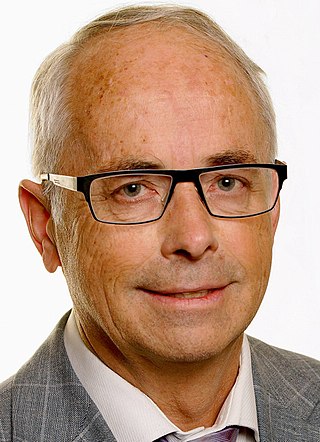
Arnold O. Benz is a professor emeritus at the Institute for Particle Physics and Astrophysics in the Physics Department of ETH Zurich.
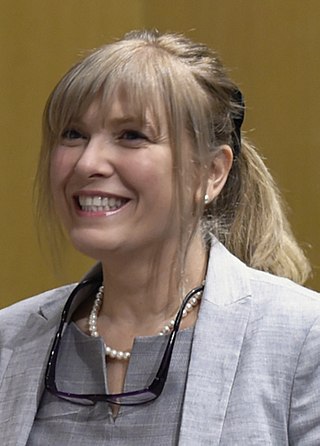
C. Marcella Carollo worked as a professional astronomer for 25 years between 1994 and 2019. Her scientific career was ended by the ETH Zürich who, following accusations that she had bullied students, made her the first Professor to be dismissed at ETH Zurich in the 165 years of its history. Carollo has maintained her innocence against these accusations, publicly commenting on her case in terms that indicate "academic mobbing". The dismissal was appealed unsuccessfully to the Swiss Federal Administrative Court.
HD 74389 is a double star system approximately 425 light years from Earth. The primary, HD 74389 A, was initially listed in the Hipparcos catalog as an A0V spectral type star, but this was subsequently updated in 1990 as A2V when Sanduleak and Pesch imaged it with the Burrell Schmidt telescope at Kitt Peak.

Radio Galaxy Zoo (RGZ) is an internet crowdsourced citizen science project that seeks to locate supermassive black holes in distant galaxies. It is hosted by the web portal Zooniverse. The scientific team want to identify black hole/jet pairs and associate them with the host galaxies. Using a large number of classifications provided by citizen scientists they hope to build a more complete picture of black holes at various stages and their origin. It was initiated in 2010 by Ray Norris in collaboration with the Zooniverse team, and was driven by the need to cross-identify the millions of extragalactic radio sources that will be discovered by the forthcoming Evolutionary Map of the Universe survey. RGZ is now led by scientists Julie Banfield and Ivy Wong. RGZ started operations on 17 December 2013, and ceased collecting new classifications on 1 May 2019.

Jesse Shanahan is an American disability activist and AI researcher born in 1991. She co-founded the American Astronomical Society's Working Group on Accessibility and Disability.

Shirley Ho is an American astrophysicist and machine learning researcher, currently at the Center for Computational Astrophysics at the Flatiron Institute, and an affiliated faculty at the Center for Data Science at New York University.
Lucy Frear Fortson is an American astronomer known for her work on gamma-ray astronomy and Galaxy morphological classification and for her leadership of citizen science projects including the Galaxy Zoo and Zooniverse. She is a professor in the School of Physics and Astronomy at the University of Minnesota.

Martin Vechev is a full professor at the department of computer science at ETH Zurich, working in the fields of programming languages, machine learning and computer security. He leads the Secure, Reliable, and Intelligent Systems Lab (SRI), part of the Department of Computer Science.


















